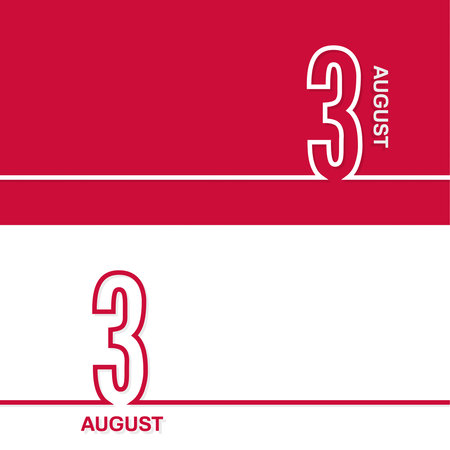Introduction: East Meets West in Fortune Telling
In the United States, zodiac signs have become more than just a passing trend—they’re a cultural phenomenon. From daily horoscopes shared on social media to dinner party conversations about Mercury retrograde, Americans have embraced both Western astrology and the Chinese zodiac as tools for self-reflection and entertainment. This fascination goes beyond personal relationships or lifestyle choices; increasingly, people are turning to the stars (and the animals) to gain insight into their careers and financial futures. The question arises: can these two ancient systems—rooted in vastly different traditions—actually agree when it comes to predicting business success? In this article, we’ll explore how Chinese and Western zodiacs resonate with Americans seeking fortune in business, and whether these systems ever align when it comes to defining who’s destined for the top.
2. Understanding the Chinese Zodiac
The Chinese zodiac, known as “Shengxiao,” is an ancient system that has shaped personal and professional identities in East Asia for centuries. At its core, the zodiac operates on a 12-year cycle, with each year represented by a different animal: Rat, Ox, Tiger, Rabbit, Dragon, Snake, Horse, Goat, Monkey, Rooster, Dog, and Pig. These animals are more than mere symbols; they are believed to influence the personality traits and fortunes of individuals born under their sign—traits that often play a role in shaping business acumen and entrepreneurial spirit.
| Animal Sign | Core Personality Traits | Business & Career Strengths |
|---|---|---|
| Rat | Smart, resourceful, quick-witted | Strategic thinking, adaptability |
| Ox | Diligent, reliable, strong-willed | Persistence, leadership under pressure |
| Tiger | Courageous, ambitious, competitive | Risk-taking, innovation-driven |
| Rabbit | Gentle, diplomatic, creative | Teamwork, creative solutions |
| Dragon | Confident, charismatic, energetic | Visionary leadership, motivation skills |
| Snake | Wise, intuitive, discreet | Strategic planning, negotiation prowess |
| Horse | Lively, independent, active-minded | Entrepreneurial drive, multitasking ability |
| Goat (Sheep) | Mild-mannered, artistic, considerate | Cultural sensitivity, team building |
| Monkey | Clever, curious, versatile | Problem-solving skills, adaptability to change |
| Rooster | Observant, hardworking, confident | Punctuality, attention to detail in projects |
| Dog | Loyal, honest, prudent | Trust-building with clients and partners |
| Pig (Boar) | Sincere, generous, optimistic | Nurturing workplace culture and morale boost |
The philosophy behind the Chinese zodiac suggests that these innate characteristics can influence career paths and business decisions. For example, Tigers may thrive in startup environments where bold moves are rewarded; Rabbits might excel in roles that require diplomacy and creativity. In China—and increasingly among Asian American communities—these associations often factor into mentorship choices or even hiring practices. As we explore how Western astrology compares in the following sections of this article series on “Business and Success: Do Chinese and Western Zodiacs Agree on Your Fortune?”, keep in mind how these culturally-rooted beliefs still play an active role in shaping professional journeys today.

3. Western Astrology: The Sun Signs and Success
Western astrology, with its twelve sun signs, has become deeply ingrained in American self-help, business literature, and pop culture. From bestselling books on “Astrology for Success” to weekly career horoscopes in major magazines, the sun signs—Aries through Pisces—are often consulted by those seeking guidance in their personal and professional lives. In American culture, astrology is more than just entertainment; its a tool for self-discovery and a lens through which people interpret personality traits, leadership styles, and career potential.
Astrology in the American Business Mindset
American business culture values individualism, ambition, and self-improvement—all qualities that Western astrology claims to identify and enhance. For example, motivational speakers and career coaches may refer to zodiac archetypes when discussing strengths and weaknesses, making astrology part of the broader language of success. Corporate retreats sometimes include astrological workshops as team-building activities, while entrepreneurs might check their sun sign compatibility before entering partnerships.
Key Sun Signs Associated with Career Success
Certain sun signs are especially linked to traditional markers of business achievement. Aries, known for boldness and initiative, is often described as the entrepreneur’s sign. Capricorn, ruled by disciplined Saturn, is associated with persistence, strategic thinking, and climbing the corporate ladder—traits revered in American executive culture. Leo, symbolized by the lion, is celebrated for charisma and leadership—qualities that fuel public-facing careers like entertainment or politics. Meanwhile, Virgo is appreciated for analytical skills and attention to detail, suiting roles in finance or management.
The Cultural Influence of Zodiac Traits
Pop culture reinforces these associations: TV shows depict ambitious Capricorns as CEOs, while energetic Aries characters take risks to start new ventures. Magazines offer tips tailored to each sign’s “business style,” further embedding astrology into mainstream conversations about work and success.
A Tool for Self-Reflection—and Networking
Whether taken seriously or with a grain of salt, Western astrology offers Americans a common language for understanding themselves and others at work. Networking events or office parties might include icebreakers about sun signs, sparking conversations about goals and motivations. Ultimately, while not everyone believes in destiny written in the stars, many find value—and even inspiration—in the zodiac’s insights on what it takes to succeed.
4. Fortune in Business: Cross-Cultural Zodiac Compatibilities
When examining business compatibility and the potential for success, both Chinese and Western zodiac systems offer unique perspectives. While each system has its roots in distinct cultural histories, many American entrepreneurs today are increasingly open to blending these traditions, seeking a more comprehensive understanding of their strengths, weaknesses, and partnership opportunities.
Comparing Compatibility: Chinese vs. Western Zodiacs
The Chinese zodiac is based on a 12-year cycle, with each year associated with an animal sign (Rat, Ox, Tiger, etc.), while the Western zodiac relies on 12 monthly signs aligned with constellations (Aries, Taurus, Gemini, etc.). Both systems provide personality insights that can influence business decisions such as team formation or leadership roles. However, do they ever agree on who makes a successful entrepreneur or which partnerships work best?
Case Studies: American Entrepreneurs Who Blend Both Zodiacs
Consider the example of Emily Chen, a Silicon Valley startup founder born in the Year of the Dragon and under the sign of Leo. She believes her Dragon-Leo combination fuels her ambition and charisma—traits highly valued in both systems. Emily consults both zodiacs when choosing co-founders, preferring to work with people whose signs suggest complementary qualities like patience (Ox/Taurus) or adaptability (Monkey/Gemini).
Another example is Michael Johnson, a marketing executive from New York who credits his Rat-Capricorn alignment for his strategic thinking and perseverance. Michael shares that his company’s HR team occasionally uses cross-zodiac compatibility charts during retreats to foster better teamwork and communication.
Business Compatibility Table
| Chinese Zodiac | Western Zodiac | Common Business Traits |
|---|---|---|
| Dragon | Leo | Leadership, Visionary Thinking |
| Rat | Capricorn | Strategic Planning, Ambition |
| Tiger | Sagittarius | Risk-taking, Innovation |
| Ox | Taurus | Loyalty, Patience |
Anecdotal Insights: Do the Signs Really Agree?
While empirical evidence remains limited, anecdotal reports from business professionals suggest there are moments of intersection between the two zodiac systems. Some find that compatible pairings in both traditions—such as a Dragon-Leo leading a team with supportive Ox-Taurus members—can enhance workplace harmony and boost collective productivity. Others note that using both zodiacs encourages open-mindedness and respect for diverse cultural beliefs within American corporate environments.
5. Fact, Fun, or Fallacy? Expert and Community Perspectives
When it comes to business success, do zodiac signs truly matter, or are they just a fun diversion? Opinions among Americans are divided, with perspectives ranging from skeptical business leaders to enthusiastic astrologers and curious employees. According to a 2023 Pew Research Center survey, around 29% of American adults say they believe in astrology to some extent, but only a small fraction admit to making career decisions based on their zodiac sign.
Business Leaders: Results Over Signs
Many CEOs and entrepreneurs in the U.S. emphasize hard work, networking, and skill development over astrological predictions. Elon Musk famously tweeted, “I don’t care what your sign is—can you solve problems?” This echoes a common sentiment in corporate America: results trump horoscopes. A recent LinkedIn poll found that less than 5% of hiring managers consider zodiac signs during recruitment or promotion decisions.
Astrologers: Patterns and Possibilities
Professional astrologers see things differently. Linda Joyce, a New York-based astrologer who consults for business clients, argues that both Chinese and Western zodiacs reveal personality tendencies that can influence workplace dynamics. “A strong Leo or Dragon may gravitate toward leadership,” she explains, “while a Virgo or Rabbit might excel behind the scenes.” However, she cautions against relying solely on the stars when making major career moves.
Everyday Americans: Curious but Cautious
For most Americans, zodiac signs serve as conversation starters rather than career guides. In an NPR interview series, young professionals admitted they occasionally read horoscopes for motivation or reassurance but stop short of letting them dictate job choices. Some mentioned using astrological insights to navigate office relationships or understand team dynamics, though few believed these signs directly determined their financial fortunes.
While the debate continues, one thing is clear: whether fact, fun, or fallacy, the fascination with zodiacs persists across American workplaces—but with a healthy dose of skepticism and humor.
6. Zodiac in Your Career: A Tool or Just Entertainment?
When it comes to making business decisions, should you really consult your zodiac sign, or is it just a quirky tradition to enjoy during coffee breaks? In the U.S., attitudes toward both Chinese and Western zodiacs are generally playful, with most professionals regarding horoscopes as entertainment rather than strategic guidance. While some people might check their daily horoscope for fun or inspiration, very few would base hiring, investments, or major career moves solely on astrological advice. That said, zodiac signs do make occasional appearances in American workplace culture—think themed birthday celebrations or icebreakers at team-building events. For many, reading about star signs is a way to lighten the mood or foster camaraderie, not a blueprint for corporate strategy. However, there’s also a growing interest in personal development trends that borrow from astrology, such as using birth charts for self-reflection or team compatibility assessments. Still, these practices are seen more as tools for self-awareness than hard science. Ultimately, while the zodiacs may spark curiosity and conversation in American business circles, they remain firmly in the realm of tradition and entertainment—not serious decision-making.
7. Conclusion: What Really Drives Success?
As we wrap up our exploration of how both Chinese and Western zodiacs interpret business fortune, it’s clear that these ancient systems offer intriguing perspectives on personality, opportunity, and luck. Many Americans find value in horoscopes as a source of motivation or self-reflection, while others see them as simple entertainment. The rich symbolism of the Chinese zodiac also resonates with those who appreciate cultural heritage and the idea of cyclical prosperity. However, it’s important to remember that neither system can guarantee—or limit—your future.
In the fast-paced American business landscape, success is rarely determined by birth charts or cosmic alignments alone. Instead, factors like hard work, adaptability, creativity, and strong relationships play far greater roles in shaping outcomes. While zodiac signs may inspire confidence or caution at times, they should not overshadow the importance of self-determination and strategic action.
Ultimately, whether you are a bold Aries or an ambitious Dragon, your achievements will be defined more by your choices than by your stars. Let zodiac insights prompt reflection—but let your drive, discipline, and vision lead the way. In America’s diverse and dynamic marketplace, the true keys to business achievement are found within yourself.


